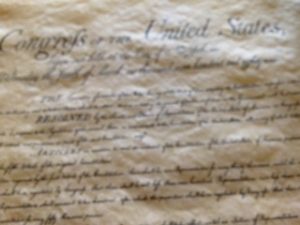 Private school vouchers hark back to President George W. Bush and his signing of the D.C. School Choice Incentive Act of 2003, thus creating the D.C. Opportunity Scholarship Program. As a result, numerous low-income families received funding to make up for the cost of sending their children to private school.
Private school vouchers hark back to President George W. Bush and his signing of the D.C. School Choice Incentive Act of 2003, thus creating the D.C. Opportunity Scholarship Program. As a result, numerous low-income families received funding to make up for the cost of sending their children to private school.
However, President Obama’s 2009 budget cut the program’s funding “including language to prohibit any new students from receiving scholarships.”
Then in 2011, Republican Speaker of the House John Boehner and Democrat Joe Lieberman restored the program via their Scholarships for Opportunity and Results (SOAR). This program offered K-8 students up to $8,000 a year and up to $12,000 annually for high schoolers.
However, Obama’s 2013 budget allowed for coverage only through that year and no further.
Nowadays, there are reportedly 25 voucher programs in place in 14 states and D.C., too,, all with varying eligibility requirements.
In Montana, eligibility is universal.
Enacted in 2015, it served 25 students and provided them with scholarships–average cost of $500–for the 2016-17 school year. However, in 2018, the Montana Supreme Court deemed it unconstitutional, citing the Blaine Amendment, which “forbids direct government aid to educational institutions that have a religious affiliation.”
Now Montana’s voucher program heads to the Supreme Court, and school choice proponents are applauding.
As education Reporter for U.S. New & World Report Lauren Camera explains, “The specific question the Court will consider is whether the state of Montana violates the First Amendment by prohibiting students and families who choose to enroll in private religious schools from participating in the state’s tax credit scholarship program, which provides tuition assistance to students to attend private school.”
Saying he is “incredibly pleased,” John Schilling, president of the American Federation of Children, put it this way: “This Montana case has the opportunity to definitely establish that religious schools cannot be excluded from school choice programs by virtue of their religion.”
Those opposed to such programs, though, make the case that the U.S. Constitution calls for separation of church and state.
Says AFT President Randi Weingarten, “This long tradition—established to ensure the religious freedom of all—should be protected by conservatives and liberals alike. It’s alarming that the current Supreme Court would try to revisit and undo that precedent, in public schools no less, as it sets a dangerous standard and opens the door to the dismantling of a basic tenet of our nation’s democracy.”
With my many thanks, stay tuned… ~ Carol (schoolwisebooks.com)